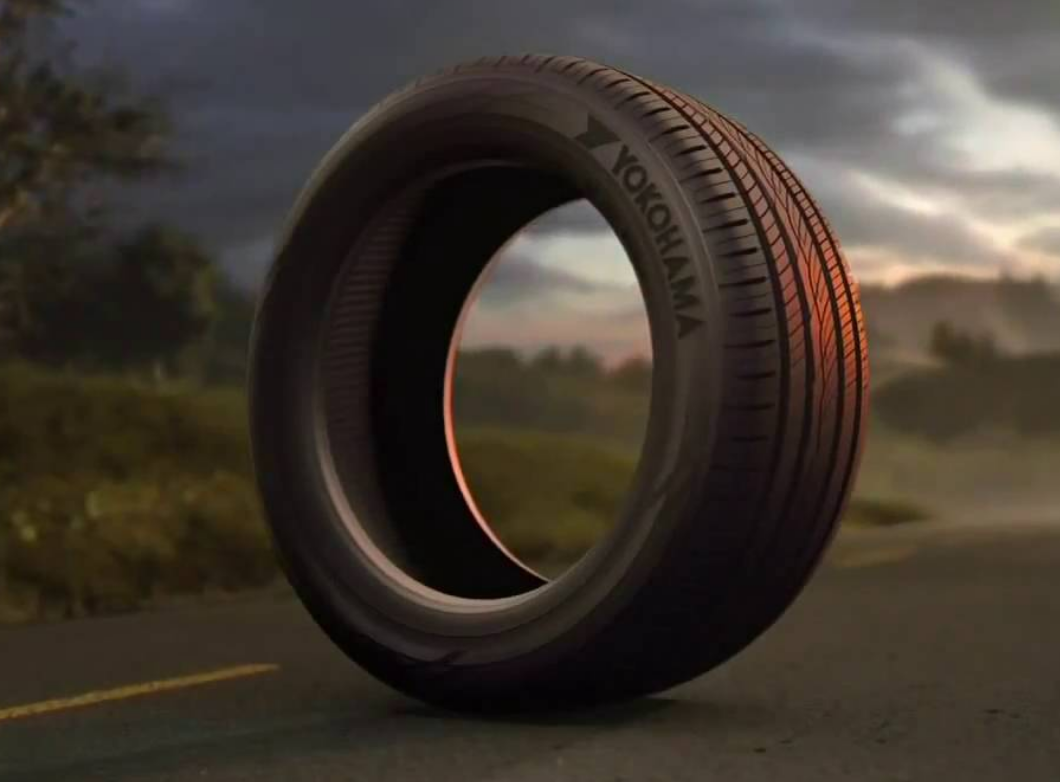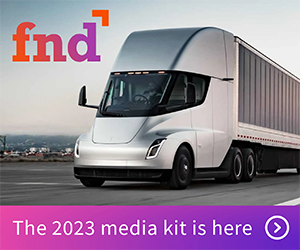Commercial Tire Market Strong According to Yokohama Tire VP
Dan Funkhouser, Yokohama Tire’s recently promoted VP of commercial sales, is bullish on the commercial tire market. In this Q&A, he looks at what’s contributing to its growth…and what could slow it down.
Question: What are your takeaways from 2017 for the commercial tire market and Yokohama Tire?
Dan Funkhouser: The commercial tire market is very strong and in growth mode. Both the replacement and OEM tire markets are expanding. This fits in perfectly with Yokohama’s new manufacturing plant in West Point, Mississippi, which will increase our capabilities to service both our OEM and replacement business partners as they grow. OEM orders increased near the end of last year and that trend has continued. We feel that replacement and OE segments are going to be very strong in 2018.
Question: What’s making the commercial tire market so strong?
Funkhouser: The manufacturing sector is experiencing unusually robust expansion. Housing starts are at a 10-year high. The reduction in the corporate tax rate will lead to a reinvestment in manufacturing and capacity. Manufacturing is strong and the economy continues to grow at a solid pace. People are spending money and consumer confidence has increased.
Question: Industry-wise, what will drive the market in 2018? Any new trends to watch?
Funkhouser: The manufacturing sector is going to continue its potent run. Shipping capacity remains very tight, hovering close to 100 percent. That’s going to force the industry to respond with new equipment purchases, which in turn is going to put more pressure on the issue of driver and driver retention. This will mean the driver shortage will remain an issue. All of this has led to freight rates that are exceeding a five-year high over the quarter and will continue to remain high. All freight segments year-over-year are up, dry van freight is up 54 percent, refrigerated freight is up 112 percent, flatbed freight is up 63 percent and specialty freight is up 45 percent.
As the price of gas and diesel continue to rise, oil and gas production will increase in the U.S. Servicing these customers require the type of tire with chip and cut-resistant tread compounds with durable casing that are retreadable. Yokohama has always been a leader in the on/off road segment and our casing has a reputation in the market as one of the most retreadable in the industry.
The new greenhouse gas regulations are starting to have an effect on the marketplace. Tire manufacturing planning teams are designing products that will meet or exceed the new standards that will be in effect soon. For example, the new Yokohama R&D facility in Charlotte, North Carolina will design tires for the U.S. market that will be built by our plant in Mississippi. These tires will be designed and manufactured to meet and exceed those new regulations.
Question: What sectors will present the best opportunities?
Funkhouser: The entire transportation market is growing. As manufacturing continues to grow the need to ship, the components and finished products will rise. Construction is going to increase and the infrastructure bill will add many construction and road jobs. As the price of gas and oil continue to rise, servicing the oil and natural gas fields will increase. This will cause an increase in mixed service tire demand and retreading.
Question: What do you see that could impact the market negatively in 2018?
Funkhouser: The increase in the price of fuel. As fuel prices increase, freight costs will go up. I also think the infrastructure – its costs and the highway jobs – are going to cause an increase in traffic jams and could delay some shipments across the country. These delays could also have an effect a driver’s hours of service.
The driver shortage is an issue. Fleets are already operating at capacity close to 100 percent. There just are not enough drivers to service the increase of freight demand in the marketplace. This issue will continue to impact and limit growth in the commercial trucking market.
Question: What’s new for Yokohama in 2018?
Funkhouser: We recently launched the SmartWay®-verified TY577 MC2™, which is a fuel-efficient, long-haul drive tire that’s 30/32-inches deep. It’s available in sizes 295/75R22.5, 11R22.5, 285/75R24.5 and 11R24.5, in 14- and 16-ply ratings. The TY577 MC2 will be at our booth (#2821) at the TMC show.
We’ve also just introduced two new trailer tires that will also be at TMC: the BluEarth® 109L and BluEarth® 109L ultra wide base (UWB). The 109L UWB, our most fuel-efficient trailer tire, is designed for long-haul and line-hall applications, will be offered in size 445/50R22.5 and comes with a six-year unlimited mileage/three retread warranty.
The long-haul 109L, which is manufactured at our Mississippi plant in West Point, Mississippi, will come in sizes 295/75R22.5, 11R22.5, 285/75R24.5 and 11R24.5. It has the lowest rolling resistance in the category.
Question: What are fleet’s biggest concerns when it comes to tires?
Funkhouser: The total cost of ownership over the lifetime of the tire. This includes things like the original tread life/mileage, the fuel saving of a low-rolling resistant tire, being available when and where the fleets need them, and the retreadability of the casing.
Question: What do you hear from fleets about the influx of cheaper tires that are coming into the market? Are they still looking for good quality tires or are some going for price?
Funkhouser: There will always be those that will just buy a tire on price, and truthfully, some of those tires coming in are getting better. However, fleet managers still look at the total cost of ownership. This includes national account programs, the emergency road service coverage, the total availability of the tire across the market and, a quality casing. Fleet managers may also limit the number of brands they run in their fleet.
I think they tend to stay with the manufacturers that offer the lowest cost of ownership in total.
Question: You’ve got a shortage of drivers on one hand and self-driving trucks on the horizon. Any idea how it’s going to play out in the industry?
Funkhouser: One thing we do know for sure is self-driving trucks will still require tires, and we will continue to make tires for those vehicles. Right now, the technology is all so new that we don’t know. It will be some time until we see self-driving cars and trucks on the road in mass, but the technology exists. I am sure someday it is going to happen, but at the end of the day, it will take an extremely professional and qualified driver to deliver the product to the ultimate end-user.
Category: Featured, General Update, News, Wheels & Tires










